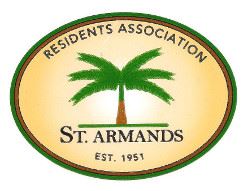| St. Armands Residents Association |
Hurricanes
Hurricane season in Sarasota starts June 1 and ends officially on November 30 every year. |
| On October 9, 2024, the center of the eye of Hurricane Milton passed directly over St. Armands Key, causing significant wind and wind-driven water damage. This happened just two weeks after Hurricane Helene caused an even higher level of flooding (but with less wind). Nothing like this scale of damage had been seen here in the 64 years since Hurricane Donna in 1960. |
What your insurance agent isn't telling you: You have homeowner's insurance, wind coverage (a.k.a. "hurricane coverage"), and flood insurance. You think you're covered, right? Wrong. During the 2024 storms, residents of the barrier island neighborhoods discovered that basic flood insurance only covers damage to the living space in the primary structure (up to $250k) and the contents in that living space (up to $100k). Flood insurance does not cover many pricey items such as docks, walls/fences/gates, landscaping, swimming pools, pool equipment, outside air conditioning units, or gate operators/controllers. If your house is elevated, flood insurance may not cover remediation and repair of ground-level, non-conforming spaces including the garage, and it may not cover damaged items in those ground-level, non-conforming spaces. If damage was caused by wind, the amount of damage will often not exceed the high deductible of your wind (hurricane) coverage. Your "other structures" coverage in your homeowner's policy does not cover flood damage either. |

